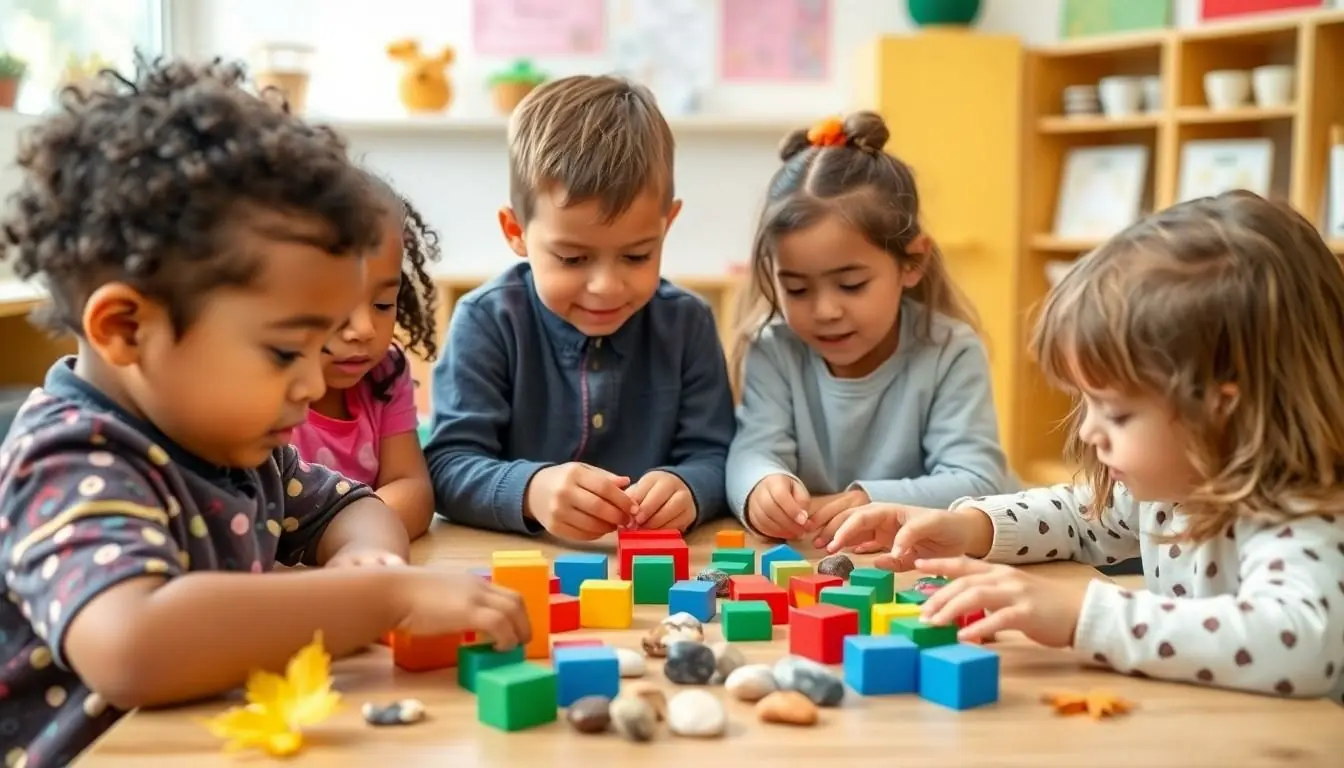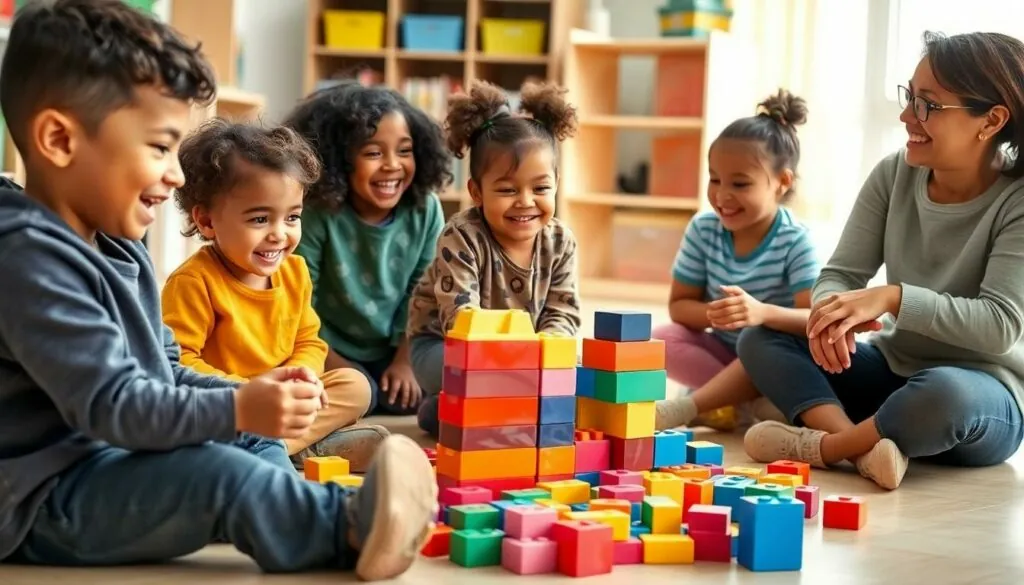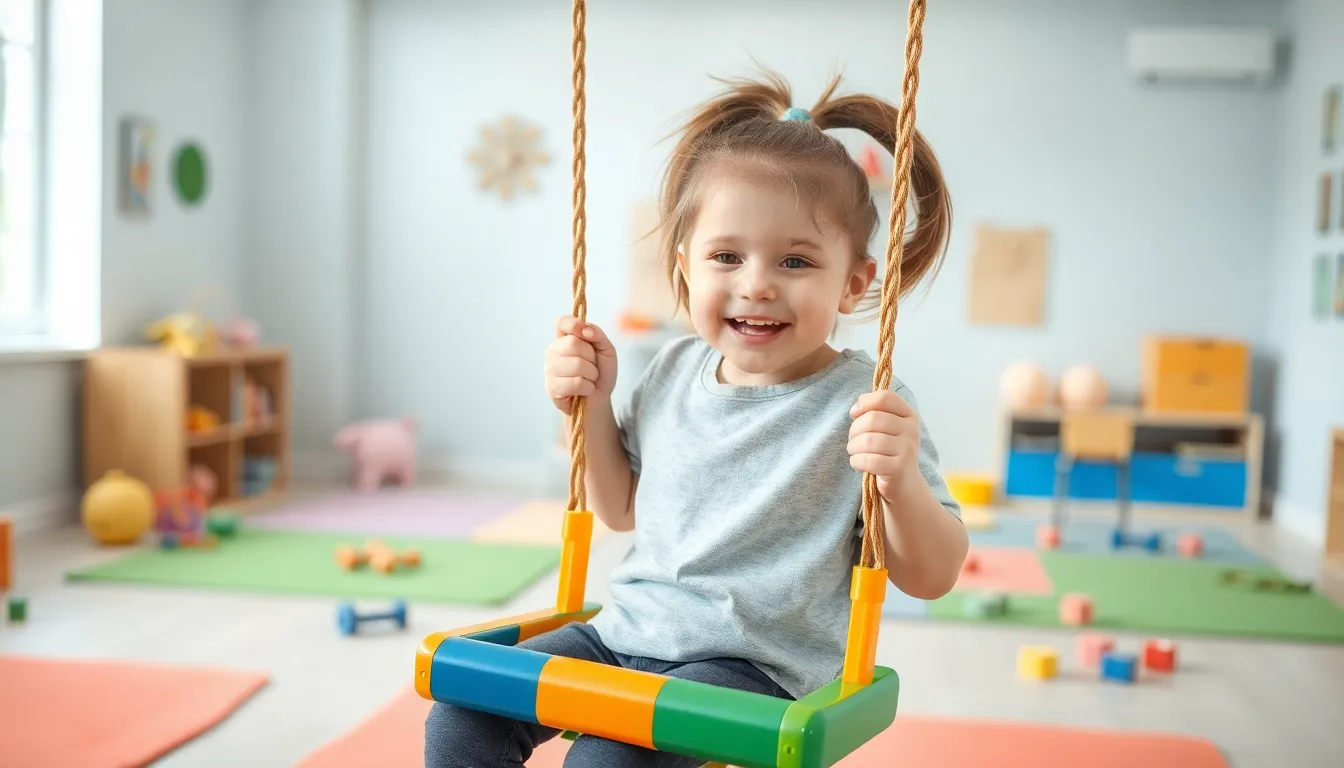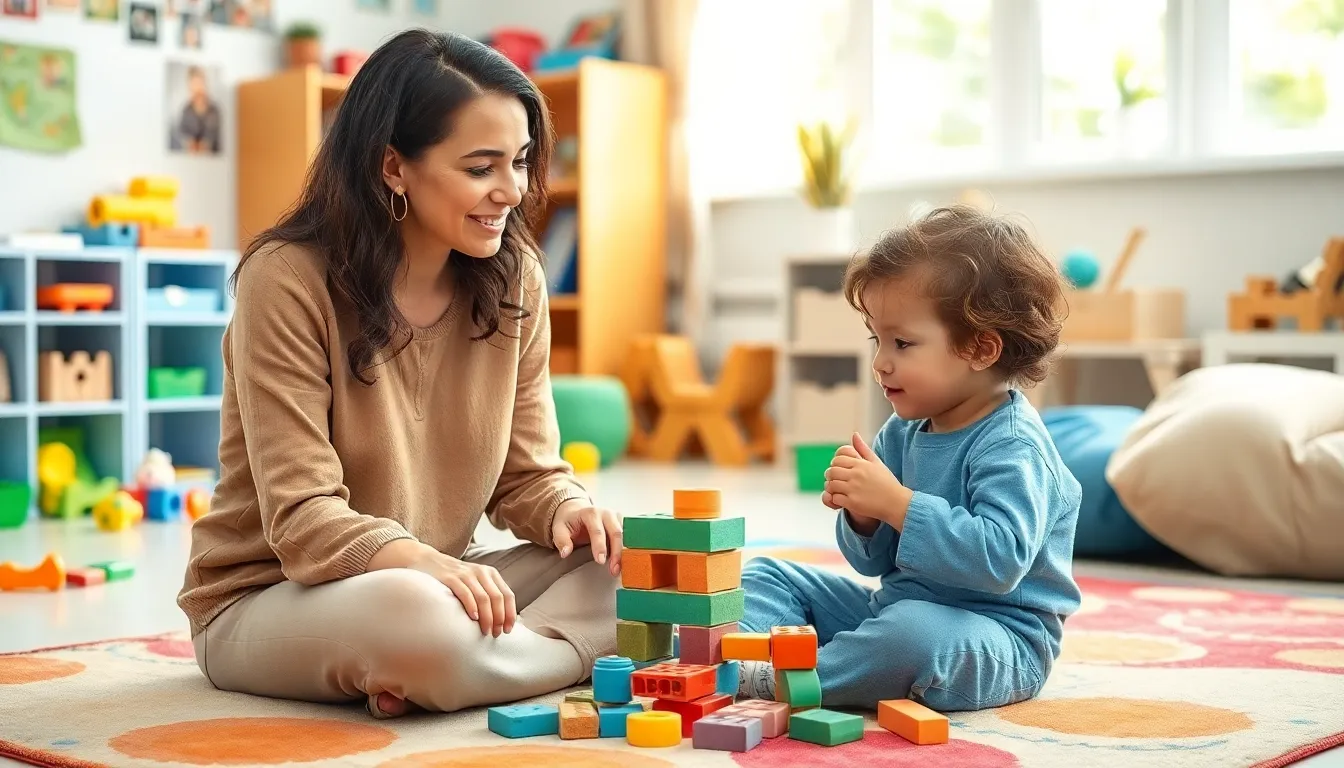Counting isn’t just about numbers; it’s an adventure waiting to unfold in the colorful world of preschool! Imagine tiny hands reaching for blocks, eager minds buzzing with curiosity, and giggles echoing as children embark on their counting journey. With engaging counting activities, kids won’t just learn; they’ll play, explore, and discover the joy of numbers.
Table of Contents
ToggleImportance Of Counting Activities For Preschool
Counting activities play a crucial role in preschool education. Such activities foster early mathematics skills, laying a foundation for future learning. Engaging with numbers enhances cognitive development, stimulating brain functions related to problem-solving and reasoning. Children learn to recognize patterns and sequences, which strengthens their analytical abilities.
Incorporating counting into daily routines provides practical applications. For instance, counting objects during playtime reinforces number recognition and association. This hands-on approach makes abstract concepts tangible and prompts curiosity, sparking a desire to explore further.
Social skills improve as children engage in group counting activities. Working together encourages communication and collaboration, essential components in early childhood development. They learn to share ideas and take turns, promoting teamwork while enjoying counting games.
Research shows that early exposure to numbers positively impacts academic performance. Kids who participate in counting activities often exhibit enhanced mathematical skills in later years. Statistical methods indicate that interactive learning experiences solidify their understanding of numerical concepts.
The joy of learning emerges when children participate in counting songs and rhymes. These engaging formats make numbers memorable, weaving fun into education. They discover rhythm and connection to numbers, making learning enjoyable.
Overall, counting activities provide a comprehensive approach to early childhood education. Through play and exploration, children understand the significance of numbers in their lives, paving the way for a strong mathematical foundation.
Types Of Counting Activities

Counting activities in preschool come in various engaging forms that support early learning. These activities not only enhance numerical skills but also make the learning process enjoyable.
Hands-On Counting Activities
Hands-on counting activities provide tactile experiences that enhance learning. Children often use blocks, buttons, or nature items like stones or leaves for counting exercises. Playful sorting games further develop counting skills, as kids categorize items while counting them. These interactions create memorable learning moments that encourage exploration and curiosity. Incorporating everyday objects allows children to connect numbers to real-world experiences effectively.
Interactive Counting Games
Interactive counting games encourage social interaction among preschoolers. Games like counting chants or virtual counting apps help reinforce number recognition while promoting teamwork. Many children learn through play, making group activities like “Count the Animal” a favored choice. This type of learning fosters communication and engagement, as kids work together to solve challenges. Additionally, games that include music or movement can make counting lively and fun, enhancing overall retention of numerical concepts.
Benefits Of Counting Activities
Counting activities provide numerous advantages that contribute to preschoolers’ overall development. Engaging children in these experiences fosters learning in a vibrant and enjoyable way.
Cognitive Development
Cognitive skills improve significantly through counting activities. Engaging with numbers stimulates brain development, enhancing problem-solving and reasoning capabilities. Young children learn to recognize patterns and make connections, forming a foundation for mathematical understanding. Data indicates that early exposure to counting activities correlates with advanced math skills later. By involving tactile elements like blocks or buttons, kids gain hands-on experience, solidifying their comprehension. Activities that challenge children to count and compare quantities promote critical thinking and creativity. Thus, integrating counting into playtime lays the groundwork for lifelong mathematical proficiency.
Social Skills Enhancement
Social skills receive a boost through group counting activities. Working in teams helps preschoolers learn communication and cooperation, vital components of early relationships. Children engage with peers, sharing ideas and strategies during counting games. They develop empathy and patience as they take turns and encourage one another. Collaborative counting exercises create a shared experience, making learning fun and interactive. Research confirms that social interaction in educational settings positively impacts children’s emotional wellness. Therefore, counting activities not only teach numbers but also nurture essential interpersonal skills, setting the stage for future interactions.
Tips For Implementing Counting Activities
Creating a vibrant learning space promotes enthusiasm for counting. Incorporate colorful decorations that feature numbers and counting themes. Arrange areas with counting games and resources within easy reach. Use music that emphasizes numbers, drawing children’s attention while they engage in counting activities. These elements stimulate curiosity and foster a joyful learning atmosphere.
Involving everyday objects proves effective for counting exercises. Gather items like fruits, toys, or household items for hands-on counting experiences. Children can count apples during snack time or sort buttons by color and size while reinforcing number recognition. This approach connects counting to their environment, enhancing understanding and retention. Playing with familiar items makes learning relatable, encouraging exploration and interaction with numbers.
Counting activities in preschool are essential for nurturing a child’s early mathematical skills and cognitive development. By integrating play with learning children not only grasp the concept of numbers but also experience the joy that comes with exploration. Engaging in hands-on and interactive activities fosters curiosity and social skills as they work together with peers.
Creating a vibrant and stimulating environment encourages children to connect counting with their everyday lives. The benefits of these activities extend beyond simple number recognition, laying a strong foundation for future academic success. As children discover the world of numbers through play they develop critical thinking and problem-solving abilities that will serve them well in their educational journey.






